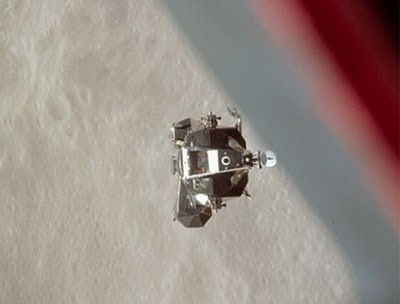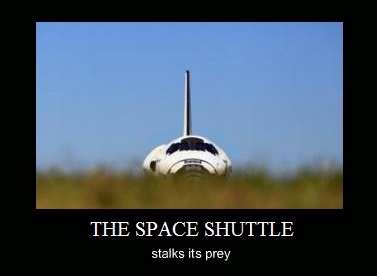I'm not sure if this is a noble endeavor or fruitbat crackers in the classical sense, but it seems there is now an international Snoopy Search Party, and it just smacks of a lesser-known X-Files episode.

In May of 1969, astronauts Tom Stafford, John Young and Gene Cernan completed what was known as the "Dress Rehearsal" mission of Apollo 10. The crew completed 31 orbits of the moon in Command Module Charlie Brown, and tested the guidance and navigation systems of the Lunar Module Snoopy.
During trial maneuvers, the Snoopy LM came within 8.4 nautical miles of the moon's surface. The descent stage was deliberately crashed into the lunar surface; the ascent stage, after its crew exercises, was cast into heliocentric orbit, where it's been now for 42 years.

No other once-manned spaceships are still out there the in the black. Snoopy is the lone wolf. At present, Charlie Brown is in the Science Museum of London – so it's not hard to see why a British team learned all about this mission and decided they were going to track Snoopy down.
British amateur astronomer Nick Howes, who's passion normally lends itself to hunting asteroids, rounded up some heavy hitters with the intent of finding the tiny LM. NASA's JPL, Wales' Faulkes Telescope team, the Space Exploration Engineering Corporation, California's Jamesburg Earth Station and Italy's Remanzacco Observatory will be overseeing the project with schools across Britain, despite having no reliable orbital data after 1970.

Apollo 10 Crew. Guilty of littering.
The search area of this science project is over 135 million kilometers; the vast visual field will be examined with robotic telescopes and later, spectral analysis, if any potential possibilities are found in terms of hardware.
Wow. Needle. Haystack.
So says the Faulkes Education Director Sara Roberts: "There will be a huge search field to examine, so this is not something which will happen overnight. It could take weeks, months, years — or we may possibly never find it. But we're going to try, and as a bonus, the areas we'll be searching will hopefully turn up new asteroids, and maybe even some comets, so there will be useful results whether we find Snoopy or not."


































































